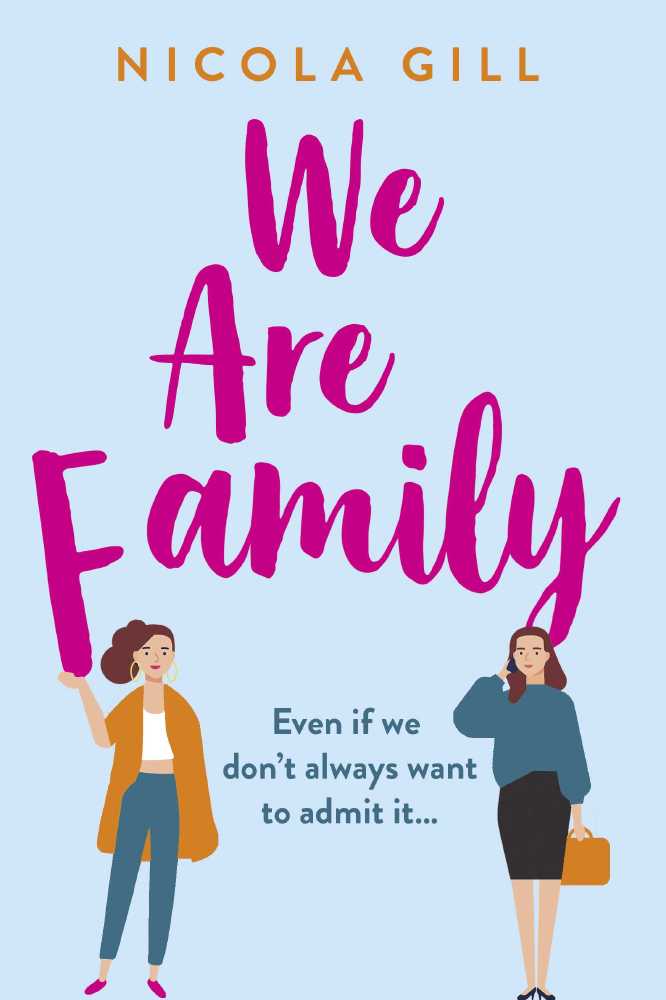From how to deal with feedback to whether you should edit as you go along, here’s some advice that could bring you closer to seeing your name on a cover.

We Are Family
I’m going to start with a great big disclaimer: I’m no guru (unfortunately!). In fact, with only two books under my belt, I’m something of a newbie author myself. That said, I have learned a few things in getting to this point, some of which could help you.
Make time to write
Often when I tell people I’m an author they say they would write a book if they ‘had the time’. This irritates me a *little*. I have job, a husband and two kids. The simple truth is that, if writing is important to you, you’ve got to create time for it. When I was writing my debut novel The Neighbours, I got up hideously early each morning to write before work. I also spent large swathes of my weekends writing (yes, my social life was fabulous!).
It’s about bums on seats
The simple, unglamorous truth is you have to show up. Force yourself to stay in front of your computer even when you feel nothing is flowing. Don’t check Facebook… or the news. Don’t Google a recipe for dinner. Which leads me neatly on to…
Don’t wait for inspiration
Once I heard a successful author on the radio talking about how if you were waiting for the muse to strike, you should ‘get away from your desk’. I was delighted by this advice and took it very seriously. Way too seriously. Do not make the same mistake as me and think the muse will show up in the Zara changing room. She will not.
Or for ‘perfect’ chunks of time
Often people assume it’s not worth trying to write unless they have several hours on their hands, but even ten minutes is better than nothing and keeps your story fresh in your mind. I often scribble down ideas in a notebook when I’m on the tube. It’s a far cry from being the ‘author’ we all have in our minds – a person sitting serenely in a huge, light-filled office – but it’s still time well-spent.
Let your first draft suck
I am sure there are a few gifted exceptions, but most authors will admit their first drafts are pretty awful. There’s a reason why they’re often referred to as the ‘discovery draft’ or – and no one would call this expression poetic – the ‘vomit draft’.
When you first start working on a story, the important thing is getting something down. Why? Well, because you can’t edit a blank page. As literary God Robert Harris says, you have to ‘write your shit.’
For this reason, I am very wary of editing too much as you go along.
Listen to feedback… most of the time
Feedback is tricky. On the one hand, it’s absolutely vital and you have to be able to listen to it. On the other, sometimes people will offer opinions you need to ignore, and at the end of the day it’s your book. Knowing the difference takes some doing.
It’s also important to think where the feedback is coming from. Your mum loving your book may not mean it’s brilliant – sorry!
Finish something
Often when you’re writing one story, an idea for a ‘much better’ one pops into your head. This usually happens to me when I’m at the notoriously tricky 30,000-word mark with a book, and it all feels like a bit of a struggle. Just remember that if you abandon the project you’re working on for the Shiny New Idea, there will inevitably be a point when that seems tricky.
Don’t be too hard on yourself
You know what’s really dispiriting when you’re struggling with a badly-behaved draft? Reading lots of fabulous books and knowing, just knowing, that yours will never be as good. But guess what? You’re not comparing like with like. The books on shelves are the finished product. There was almost certainly a point when their authors were convinced they were rubbish. Since then, they will have been redrafted umpteen times and have been worked on by lots of clever people from agents to editors. I’m not saying we can all be Marian Keyes (I wish!) – just that it’s not fair to compare your work in progress with a book that’s on the shelf.
Accept that you’ll get rejections
I have a quote on the wall next to my computer which reads: A winner is just a loser who tried one more time. I think that gives you a clue that I may have experienced a few rejections!
I’m not here to tell you rejections don’t hurt like hell because they absolutely do. Just that they’re part of the process.
MORE: Nicola Gill: 10 Things I'd like my readers to know about me


